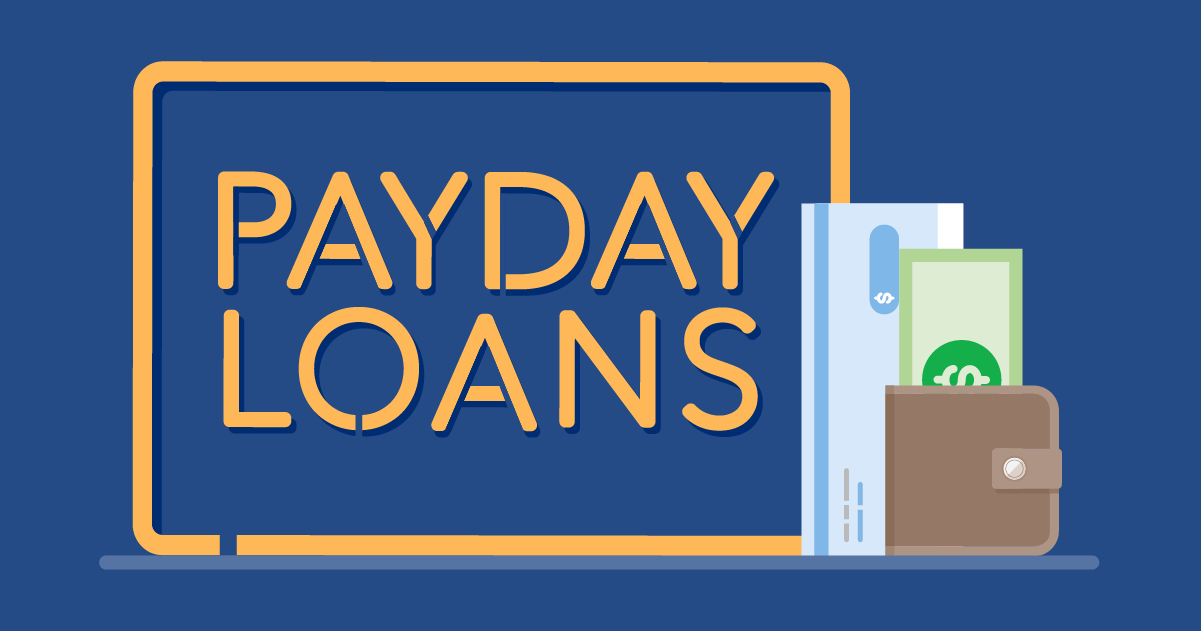A Comprehensive Guide to Home Loans: Provider and Options Explained
Charting the world of home fundings can be complicated. Various alternatives exist, each with unique features and ramifications for prospective house owners. Recognizing the differences in between government-backed and traditional car loans is crucial. The application process includes thorough documents and pre-approval actions that lots of forget. As consumers commence on their home-buying journey, recognizing just how to manage these duties efficiently might suggest the distinction in between financial stability and hardship. What strategies can empower them on this course?
Comprehending Home Loans: Kinds and Terminology
Recognizing the various kinds of mortgage and their connected terminology is crucial for potential home owners, as it outfits them with the expertise needed to make enlightened economic decisions. Home car loans can be extensively classified into adjustable-rate and fixed-rate home mortgages. Fixed-rate mortgages preserve a consistent rate of interest over the life of the lending, providing security in regular monthly payments. Installment Loans. On the other hand, adjustable-rate home mortgages feature rate of interest that may vary after a preliminary fixed duration, potentially causing lower initial settlements but raised future expenses
Added terminology is necessary for clarity. Principal describes the car loan amount borrowed, while rate of interest is the expense of loaning that quantity. The regard to the financing suggests its duration, generally ranging from 15 to thirty years. Recognizing these fundamental ideas makes it possible for possible customers to navigate the complex landscape of home funding, ensuring they choose the best funding choice that straightens with their monetary situation and lasting goals.
Conventional Loans vs. Government-Backed Loans
A substantial difference in home financing exists between conventional fundings and government-backed lendings, each dealing with various debtor demands and conditions. Conventional car loans are not insured or ensured by the federal government and usually call for higher credit history and down repayments. They are typically interesting customers with secure financial histories, as they may provide affordable rates of interest and terms.
On the other hand, government-backed car loans, such as FHA, VA, and USDA financings, are designed to aid details teams of borrowers, consisting of first-time buyers and veterans. Payday Loans. These lendings generally include reduced down settlement demands and more adaptable credit report requirements, making them easily accessible to a broader series of people
Inevitably, the selection between government-backed and standard car loans depends upon the customer's financial circumstance, long-term goals, and eligibility, making it essential to thoroughly examine both choices prior to choosing.

The Role of Rate Of Interest in Home Funding
Rates of interest play an important function in home financing, affecting debtors' choices between variable and fixed price loans. The choice between these options can greatly affect monthly payments, affecting general price. Recognizing exactly how rates of interest work is necessary for anyone navigating via the home lending procedure.
Fixed vs. Variable Rates
Buyers face a necessary choice when picking between fixed and variable rates, as this selection substantially influences the cost of financing with time. Fixed-rate home loans use stability, securing a rate of interest price for the life of the lending, which can be useful in a climbing rates of interest setting. This predictability permits home owners to spending plan a lot more successfully. Conversely, variable-rate mortgages, or adjustable-rate home loans (ARMs), generally begin with reduced first prices that can change based upon market conditions. While this may lead to lower first payments, consumers face the threat of enhanced rates in the future. Inevitably, the choice in between variable and fixed rates depends upon individual monetary situations, threat resistance, and assumptions concerning future interest price fads.
Influence On Regular Monthly Payments
When assessing home financing alternatives, the influence of rate of interest on regular monthly payments is an essential factor to consider. Interest prices straight influence the general cost of borrowing, impacting just how much a customer will certainly pay every month. A lower rate of interest price lead to smaller sized month-to-month repayments, making homeownership much more affordable. On the other hand, greater rates can greatly boost monthly commitments, possibly straining a house owner's spending plan. In addition, the finance term plays an important role; longer terms might spread settlements out but can lead to paying more rate of interest gradually. Understanding just how rate of interest communicate with car loan quantities and terms is necessary for borrowers to make informed economic choices and pick a mortgage that aligns with their lasting monetary objectives.
Home Loan Brokers vs. Straight Lenders: Which Is Right for You?
When thinking about a home loan, possible borrowers need to comprehend the distinctive functions and duties of mortgage brokers and straight lenders. Each choice presents its very own advantages and downsides, which can substantially influence the overall cost of financing. An informed option needs cautious analysis of these aspects to figure out the best suitable for private needs.
Obligations and duties Specified
Navigating the intricacies of home funding needs a clear understanding of the functions and obligations of mortgage brokers and direct lenders. Home loan brokers work as middlemans, connecting customers with loan providers. They analyze a customer's financial situation, curate car loan alternatives, and overview clients with the application procedure, frequently leveraging multiple lender partnerships to safeguard positive terms. Alternatively, straight lending institutions, such as banks and credit unions, give financings directly to debtors. They handle the entire financing procedure, from application to funding, with a concentrate on their own items. Each option provides distinctive avenues for obtaining funding, making it vital for debtors to review their preferences and needs when deciding between involving a home mortgage broker or dealing with a direct lending institution.
Disadvantages and pros Contrast
Picking between a home loan broker and a direct loan provider can considerably influence the home funding experience, as each option offers special benefits and drawbacks. Mortgage brokers act as intermediaries, giving you could try this out accessibility to multiple loan providers and possibly far better prices, while simplifying the finance procedure. Nonetheless, they might bill costs and depend on commission structures that can affect their suggestions. On the other hand, direct lenders enhance the process by providing in-house fundings, which can cause quicker approvals and fewer complications. Alternatively, they may have a minimal selection of products and less adaptability regarding pricing. Ultimately, the decision rests on private preferences, monetary situations, and the wanted degree of assistance throughout the mortgage trip.
Cost Ramifications Examined
While assessing the expense effects of mortgage brokers versus direct lenders, possible property owners need to consider different elements that can substantially impact their general costs. Home mortgage brokers usually charge costs for their services, which can differ significantly, affecting the total loan expense. They frequently have accessibility to a wider variety of funding products and competitive prices, potentially conserving customers money in the lengthy run. Alternatively, direct loan providers might use an extra straightforward procedure with perhaps reduced upfront expenses, yet their funding choices might be restricted. It is essential for house owners to contrast interest prices, fees, and terms from both loan providers and brokers, guaranteeing they make an informed choice that lines up with their financial goals and needs.
The Home Loan Application Refine: What to Expect

The mortgage application process can frequently really feel intimidating for many applicants. It usually starts with gathering required paperwork, consisting of proof of earnings, credit rating, and individual identification. Lenders use this details to analyze the candidate's financial security and identify finance eligibility.
Next off, candidates submit an official application, which might involve filling in on-line kinds or providing details face to face. During this stage, loan providers review various elements, such as debt-to-income ratio and credit score, to choose loan terms.
Once pre-approved, the loan provider will certainly conduct a thorough appraisal of the property to ascertain its worth straightens with the loan quantity. This phase may also include additional history checks.

After last authorizations and problems are met, the car loan is processed, leading to the closing stage. Recognizing each action equips applicants, making the trip smoother and more convenient More hints as they approach homeownership.
Tips for Managing Your Mortgage Sensibly
Efficiently steering the mortgage application process is simply the start of a liable economic trip. Taking care of a mortgage calls for interest to a number of vital practices. Borrowers need to develop a clear budget that fits month-to-month home mortgage repayments, property tax obligations, and insurance coverage. Frequently reviewing this spending plan aids prevent overspending and warranties prompt repayments.
Additionally, making extra settlements when feasible can significantly decrease the loan principal and complete rate of interest paid with time. Debtors must additionally keep open lines of interaction with their lending institution, particularly in times of economic difficulty. This can bring about potential solutions such as loan modifications or refinancing alternatives.
It is a good idea to keep track of credit rating scores regularly. An excellent credit rating can provide chances for much better loan terms in the future. Cash Loans. By complying with these tips, home owners can navigate their car loan responsibilities successfully, assuring lasting economic health and security
Frequently Asked Questions
What Are Closing Costs and Exactly How Are They Calculated?
Closing prices incorporate fees connected with settling a home loan, including assessment, title insurance, and car loan origination costs. These costs usually vary from 2% to 5% of the finance quantity, varying based upon area and lender.
Can I Receive a Home Mortgage With Bad Credit Rating?
Yes, people with poor debt can receive a mortgage, though alternatives may be limited. Lenders commonly call for higher deposits or interest rates, and exploring government-backed fundings may enhance opportunities of approval.
What Is Home mortgage Insurance policy and When Is It Required?
Home loan insurance protects loan providers versus default and is normally required when a debtor makes a down repayment of less than 20%. It assures that lenders recoup losses if the consumer fails to repay the finance.
Exactly How Does Refinancing Job and When Should I Consider It?
Refinancing entails changing a current mortgage with a brand-new one, normally to protect a lower passion rate or adjustment financing terms. Home owners ought to think about re-financing over at this website when rate of interest go down considerably or their economic situation boosts.
What Happens if I Miss a Home Mortgage Repayment?
If a home loan repayment is missed out on, the loan provider usually assesses late costs, reports the misbehavior to credit rating bureaus, and might start foreclosure process if repayments proceed to be disregarded, eventually endangering the property owner's residential property.
Fixed-rate mortgages keep a regular interest rate over the life of the loan, offering stability in month-to-month repayments. A substantial distinction in home financing exists in between standard loans and government-backed fundings, each providing to different customer needs and circumstances. In contrast, government-backed financings, such as FHA, VA, and USDA lendings, are developed to help specific teams of debtors, consisting of new property buyers and veterans. Rate of interest rates play an important function in home financing, influencing borrowers' decisions between fixed and variable rate loans. Fixed-rate mortgages provide security, locking in an interest rate for the life of the loan, which can be beneficial in an increasing interest price environment.